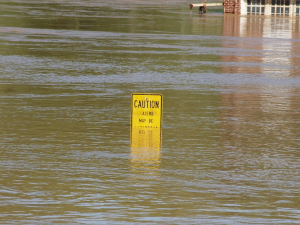5 Tips to Help You and Your Family Prepare for a Disaster
Thinking about worst-case scenarios is never fun, but being prepared in the face of a disaster can mean the difference between life and death for you and your loved ones. If you want to protect your home, your family, your pets and yourself in a dangerous situation such as a fire or natural disaster, you’ll need to keep a few things in mind. Here are five ways you can keep your family safe when the unthinkable happens.

Know the Dangers in Your Area
Disaster can strike at any time, but it’s always a good idea to educate yourself about the major risks in your area. If you live on the coast, you’ll want to keep track of hurricane season; if you’re in Southern California, you may be more worried about mudslides and fires; and if you’re in the South, tornados are a serious threat. Depending on the disaster, you may need to take different precautions to stay safe, so think about that as well. Even if you live in a low-risk area, it’s still a good idea to prepare yourself for fires and other emergencies that can occur anywhere. Check your insurance plan as well to make sure your home is covered for any possible damage or destruction that could occur in your area, including floods, if needed.
Put Together a Plan, and Practice It
Every individual and family should have at least a basic plan in place for emergencies. Figure out safe spots in your home during storms, and think about how you would get out during a fire and how you can help your family and pets get to safety. Once you’ve figured out a plan, practice it! Take your family members through each step, and be aware of ways to improve. Practicing before a disaster strikes makes it easier to remember tiny but important details when danger has your adrenaline pumping.
Assemble a Disaster Toolkit
As you put together your plan, it’s a good idea to start putting together a toolkit as well. Having a few basic supplies can help you stay safe no matter what happens. Invest in a first-aid kit and essential battery-powered devices such as a weather radio and flashlights, and keep fresh batteries on hand. Stock up on at least a 3-day supply of non-perishable food and water. You can even stock a small bag or backpack with portable items in case you need to get out of your house quickly, but make sure you have some sort of toolkit prepared at all times.
If you’re a pet parent, you’ll also need to include your pet in your disaster plan. You should have a go-bag for your pet, which should include at least 3 days’ worth of food and water, dishes for eating and drinking, a leash and harness/collar, and a comforting item like a toy. Also be sure that any identification tags have up-to-date information on them so you can be reunited should you get separated. If your pet doesn’t normally wear a collar with an ID tag, play it safe by having one in your go-bag; that way, you can put it on your furry friend if disaster strikes.
Update Your Emergency Contacts
You may have already taught your kids to dial 911 in emergencies, but you may want to update a few other important numbers as well. Creating an “In Case of Emergency” list in your phone’s notes or contacts can help you get all the different levels of support you need during a disaster. You’ll know who to call to report a power outage or to find shelter if you need it. You never know what kind of help you might need during an emergency, so stacking your resources now is a good idea.
Take a First-Aid Class
Knowing how to administer emergency medical care and CPR can save a life, and is especially important during emergencies. Take the time to get some first-aid training so that you will know what to do if you or someone around you is injured. During natural disasters, emergency services are often delayed, so having some basic triage skills can help you keep you and your loved ones stable until help arrives. If you have pets, read up on first aid for them as well in order to keep all family members safe.
Putting together a disaster plan for you and your family takes some time, but it is well worth every effort. Hopefully, you will never need to use these tips, but it never hurts to be prepared with knowledge, supplies and information in case an emergency does arise.
Photo: Pixabay
